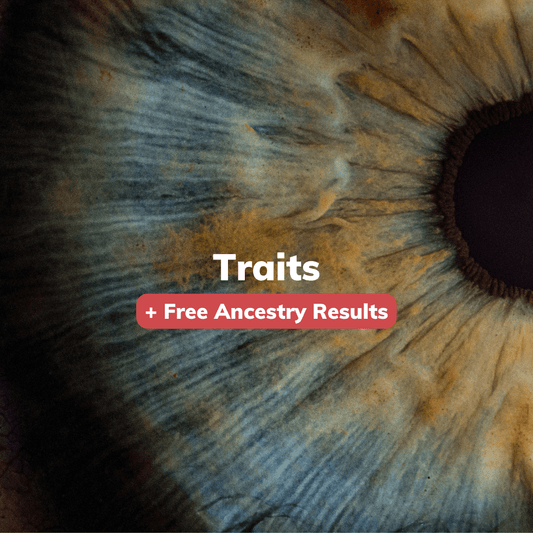
The Science of Daytime Napping: How Genetics and Timing Affect Your Snooze
BioCertica Content TeamDaytime napping is a common practice that varies from person to person. Some people swear by their afternoon siestas, while others avoid them like the plague. Napping can offer a range of benefits, from boosting alertness to reducing stress.
But have you ever wondered why some people are natural nappers while others struggle to catch a few winks during the day? The answer lies in a fascinating interplay between genetics and timing. Let's dive in!
Genetic Determinants of Daytime Napping
Several studies, including genome-wide association studies, have explored the genetic factors influencing daytime napping. These studies often use large datasets, such as the UK Biobank, to identify genetic variants linked to napping habits.
Research has identified specific genetic markers that make some people more inclined to daytime napping. These genetic variants can influence how easily you fall asleep during the day and how restorative those naps are.
Your genetic makeup doesn't just influence whether you're likely to nap; it also affects the quality and duration of your naps. Some people might find short naps refreshing, while others may need longer naps to feel rejuvenated.
Impact on Brain Health
Daytime napping has been linked to various aspects of brain health, including cognitive function and total brain volume. Some studies suggest that napping can even slow down brain aging.
Research has shown that people who engage in regular, moderate napping have larger brain volumes and better cognitive health compared to non-nappers.
While the long-term effects of daytime napping on brain health are still under investigation, preliminary findings suggest that it could have a protective effect against cognitive decline.
Cardiometabolic Health and Napping
Beyond brain health, daytime napping also has implications for cardiometabolic health. Napping can affect factors like blood pressure and waist circumference, which are indicators of heart health.
Genetic Factors Influencing Cardiometabolic Outcomes
Genetic variants that make you more likely to nap during the day can also influence your cardiometabolic health. Some of these variants are associated with higher blood pressure and other risk factors for heart disease.
Mendelian randomization studies have been used to explore the causal relationship between daytime napping and cardiometabolic health. These studies suggest that while napping can offer some benefits, excessive napping might be a risk factor for heart-related issues.
Timing Factors in Daytime Napping
Circadian Rhythms and Their Impact on Napping Patterns
Your internal body clock, or circadian rhythm, plays a significant role in determining the best time for a nap. Most people experience a natural dip in energy levels in the early afternoon, making it an optimal time for a short nap.
The best time to nap is usually early afternoon, around 2-3 p.m. Napping too late in the day can interfere with your ability to fall asleep at night.
The length of your nap can also affect how refreshed you feel afterward. Short naps of 20-30 minutes are generally best for boosting alertness without leaving you feeling groggy.
Balancing Benefits and Risks
The Potential Benefits of Daytime Napping
Daytime naps can offer numerous benefits, including improved mental performance and reduced risk of cardiovascular disease. They can also provide stress relief and support your immune system.
Risks Associated with Excessive or Improper Napping
However, not all naps are created equal. Napping for too long or at the wrong time can lead to sleep inertia, or grogginess, and may even disrupt your nighttime sleep.
Understanding your genetic predisposition and the optimal timing can help you tailor your napping habits to get the most benefits while minimizing risks.
Conclusion
We've explored the intricate relationship between genetics, timing, and the practice of daytime napping. While genetics can influence your propensity to nap, understanding the optimal timing and duration can help you make the most of your daytime snoozes.
So, are you a natural napper or a nap skeptic? Either way, understanding your genetic makeup and the science behind napping can help you make more informed choices about your daytime rest.
If you are interested to learn more about your genetic inclination for daytime napping, order our new DNA Mindfulness kit here.
References:
https://www.mayoclinic.org/healthy-lifestyle/adult-health/in-depth/napping/art-20048319
https://www.sleepfoundation.org/sleep-hygiene/napping
https://www.health.harvard.edu/staying-healthy/is-your-daily-nap-doing-more-harm-than-good


